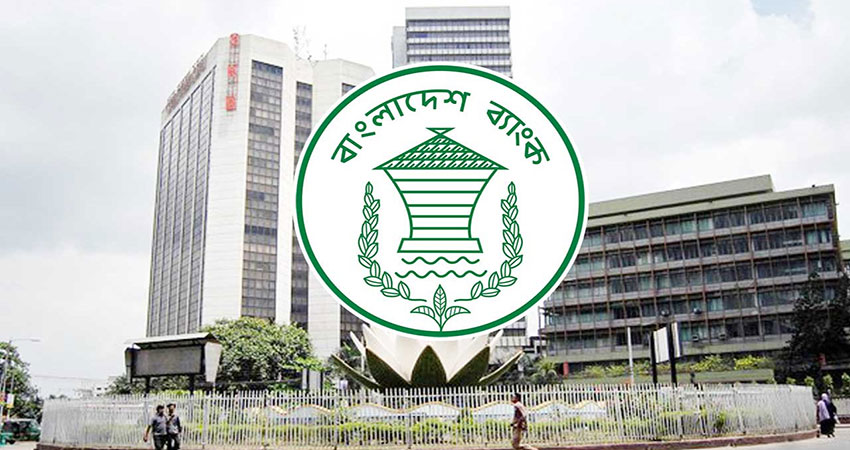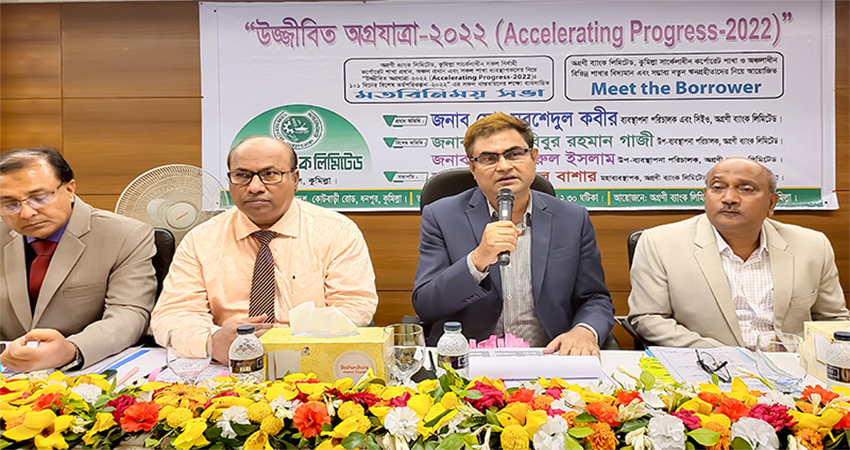The commerce ministry is going to warn the Bangladesh Bank that it will be held responsible for any shortage of essentials in the market during the forthcoming Ramadan as the central bank has not yet taken effective measures to solve existing problems, including dollar shortages, in opening LCs for imports.
The ministry will send a letter to the central bank in this regard on Sunday, said Senior Commerce Secretary Tapan Kanti Ghosh.
The ministry will request the central bank to provide dollars from reserves for the import of everyday commodities – including edible oil, sugar, dates, chickpeas, and lentil – to meet their increased demand during Ramadan, he told The Business Standard.
The letter will also ask for taking prompt steps after reviewing the Multilateral Investment Guarantee Agency's (Miga) proposal of a loan guarantee of up to $1 billion for the import of food products, he added.
The commerce ministry is sending this letter resulting from frustration at the Bangladesh Bank's failure to take necessary measures despite repeated requests to ease LC opening for the import of consumer goods and a sustained shortage of dollars in the import of essentials before Ramadan – the holy month of fasting for Muslims, said ministry officials.
The commerce secretary held separate meetings with consumer goods importers and representatives of Miga – the political risk insurance arm of the World Bank Group – respectively on Wednesday and Thursday, where the LC opening issues and the Bangladesh Bank's reluctance to be the sovereign guarantor as per Miga's loan were discussed. The ministry then decided to write to the central bank in these regards.
Tapan Kanti Ghosh told TBS that the resolution of the meeting held with importers was sent to the central bank on Thursday.
In November last year, the commerce ministry wrote to the central bank requesting it to provide the necessary dollars to keep LC (letter of credit) opening for consumer goods imports normal.
But the central bank, instead, issued a circular to take the LC margin to the minimum level on the basis of the bank-customer relationship, which importers and commerce ministry officials feel has proved to be ineffective.
Against such a backdrop, the commerce ministry on 4 January this year wrote to the central bank governor requesting to set aside a fixed amount of dollars from the export and remittance earnings for the import of consumer goods.
The senior commerce secretary also personally spoke to the central bank high-ups in this regard after the letter had been issued.
The commerce secretary quoted the central bank officials as saying that the policy of the government is that the central bank will provide dollar support only when banks are unable to provide the necessary dollars for the import of fertilisers and fuel oil, while commercial banks have to arrange the necessary dollars for the import of consumer goods.
The commerce ministry will now request the central bank to supply dollars from the foreign exchange reserves if enough dollars are not available in the commercial banks for the import of consumer goods, Tapan Kanti told TBS.
An official of the commerce ministry said that according to the allocation business rules, it is the responsibility of the Ministry of Commerce to ensure the normal supply of various commodities and keep their prices stable.
But LC opening and LC settlement for various products including sugar have decreased significantly in recent months compared to last year because of the dollar crisis. Therefore, if it is not possible to open the required LCs now, there may be a shortage of products during Ramadan, the ministry feels.
Another official of the commerce ministry told TBS that the ministry in its letter to the central bank will mention that many luxury products continue to be imported alongside essential products such as fertilisers and fuel oil. Therefore, it would be very concerning if dollars were not provided to open LCs for the import of essential food products for Ramadan.
"Now, if it is not possible to open LCs for these products quickly, there might be a supply shortage in the market during Ramadan. If this kind of situation arises before the national elections [slated for late 2023 or early 2024], the commerce ministry will be under a lot of pressure.
"But as import of consumer goods is disrupted due to the dollar crisis, the commerce ministry has no option but to request the Bangladesh Bank," said the official.
When asked about this, Bangladesh Bank Executive Director and Spokesperson Mesbahul Haque told TBS that the central bank issued necessary instructions after getting the commerce ministry instructions last November.
The central bank will not issue directives every day, he mentioned, however adding that they are monitoring the number of LCs opened by different companies. The central bank will inform the media about this, he added.
He also claimed that date imports have increased one and a half times this year compared to last year.
"Traders are importing the goods which they deem more profitable. It is not understandable why the commerce ministry is creating the impression that the Bangladesh Bank is not taking necessary initiatives."
Miga wants 6% interest
Meanwhile, the commerce secretary met with a three-member delegation of Miga on Thursday morning to discuss the World Bank Group wing's proposal to guarantee $500 million to $1 billion in loans from foreign commercial banks for a period of one year to deal with the dollar crisis for the import of consumer goods including wheat, edible oil, and sugar. Apart from the commerce ministry officials concerned, an official of TK Group – one of the leading conglomerates in the country – was also present at the meeting.
An official of the commerce ministry present at the meeting, requesting anonymity, told TBS that businesses want to avail of the loan facility offered by Miga, but the Bangladesh Bank has verbally informed the commerce ministry that it is not interested in becoming a guarantor.
The central bank has also given its opinion in favour of taking out this loan on the guarantee of private banks or corporate institutions.
The Miga's delegation, however, said Miga does not become a guarantor for foreign loans secured by private sector guarantees. The proposed loan facility will be available for Bangladeshi businesses only if the Bangladesh Bank becomes the guarantor, the official said, quoting the Miga delegation.
Commerce ministry officials said Miga will guarantee loans from HSBC, Standard Chartered, and Citibank for Bangladesh. The investment guarantee agency proposed a 2% service charge as a guarantor and 4% interest for lending banks. As such, the repayment rate of this loan will be 6%, which the commerce ministry thinks is too high.
When asked about this, Commerce Secretary Tapan Kanti Ghosh said it is not that the Bangladesh Bank is not agreeing to be a guarantor. Since Miga will arrange this loan from foreign commercial banks, the interest rate is very high, he mentioned.
"Moreover, the exchange rate of $1 in Bangladesh is Tk105 now. What will be the rate after a year, what will be the modality of the loan received on Miga's guarantee, will the loan amount be added to the Bangladesh Bank's fund, or will it go to private banks – these points need to be discussed further," said the secretary.
The Miga delegation also held a separate meeting with Bangladesh Bank officials on Thursday.
Asked about this, Mesbahul Haque refused to make any comments. He said the government will decide on this later after reviewing the terms and conditions for the proposed loan on Miga's guarantee.
Biswajit Saha, executive director of a leading consumer goods manufacturer and importer City Group told TBS, "Our main problem is that even if we manage to open an LC for the import of consumer goods, foreign banks are reluctant to confirm the LC. This problem can be solved if foreign currency loans are available on Miga's guarantee."
Source: TBS



















